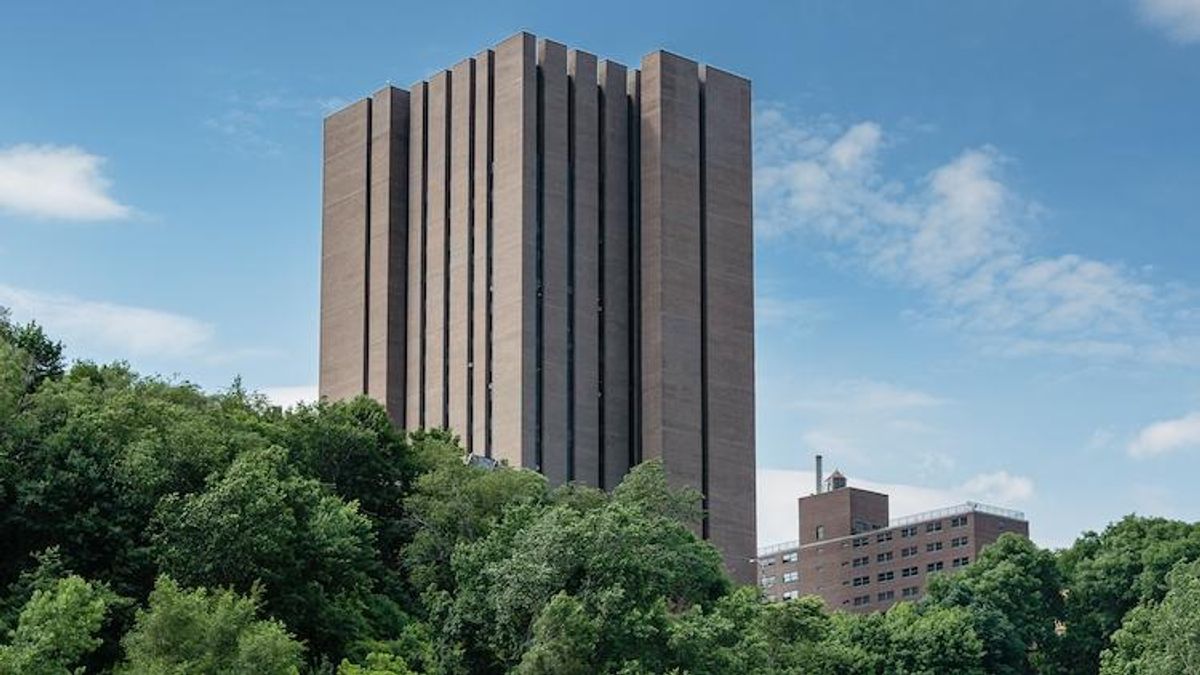Yeshiva University, an Orthodox Jewish school in New York City, is suspending all undergraduate club activities at least temporarily to avoid recognizing an LGBTQ+ organization.
The U.S. Supreme Court Wednesday declined to block a lower court's order for the university to recognize the Pride Alliance. The high court's decision came on procedural grounds, not the larger question of religious practice versus LGBTQ+ rights, as the justices said in a 5-4 decision that the university had not exhausted all its options in New York State courts.
But the university has sent an email to students saying it "will hold off on all undergraduate club activities during the upcoming chagim [Hebrew for "holidays"] while it immediately takes steps to follow the roadmap provided by the US Supreme Court to protect YU's religious freedom." Various people have shared the email on Twitter. Actually, despite the comments by tweeters, the move is not unprecedented -- high schools and colleges around the country have taken similar steps before.
"The Supreme Court has laid out the roadmap for us to find expedited relief and we will follow their instructions," Yeshiva's president, Rabbi Ari Berman, said in a Thursday statement, according to The Times of Israel.
"The case hinges on whether the university is a secular institution, bound by New York State human rights laws, or a religious institution with beliefs protected by the First Amendment," the Times notes.
Students had sued the school for discrimination over its failure to recognize the Pride Alliance. New York Judge Lynn Kotler ruled in June that the university is an educational institution, not a strictly religious one, so it has to obey the city and state laws. It grants secular degrees as well as religious ones, she said. The university has argued it is a religious institution. Orthodox Judaism, unlike Conservative and Reform Judaism, does not approve of same-sex relationships.
Four right-wing Supreme Court justices -- Samuel Alito, Clarence Thomas, Neil Gorsuch, and Amy Coney Barrett -- dissented from the decision not to intervene in the case yet. "I see no reason why we should not grant a stay at this time," Alito wrote.
"The First Amendment guarantees the right to the free exercise of religion, and if that provision means anything, it prohibits a State from enforcing its own preferred interpretation of the Holy Scripture. ... The upshot is that Yeshiva is almost certain to be compelled for at least some period of time (and perhaps for a lengthy spell) to instruct its students in accordance with what it regards as an incorrect interpretation of Torah and Jewish law," Alito continued.
The dissenting justices said Yeshiva is likely to win if its case comes before the Supreme Court. The court has a 6-3 majority of conservatives, including three justices appointed by Donald Trump, and has generally been sympathetic to claims involving religious practice.
A lawyer for the students expressed optimism they will win in the end, however. "We are confident that we will continue to overcome the administration's aggressive litigation strategies against its own LGBTQ+ students," Katie Rosenfeld told the Times. "At the end of the day, Yeshiva University students will have a club for peer support this year, and the sky is not going to fall down. No longer will students be denied a safe and supportive space on campus to be together."













































































